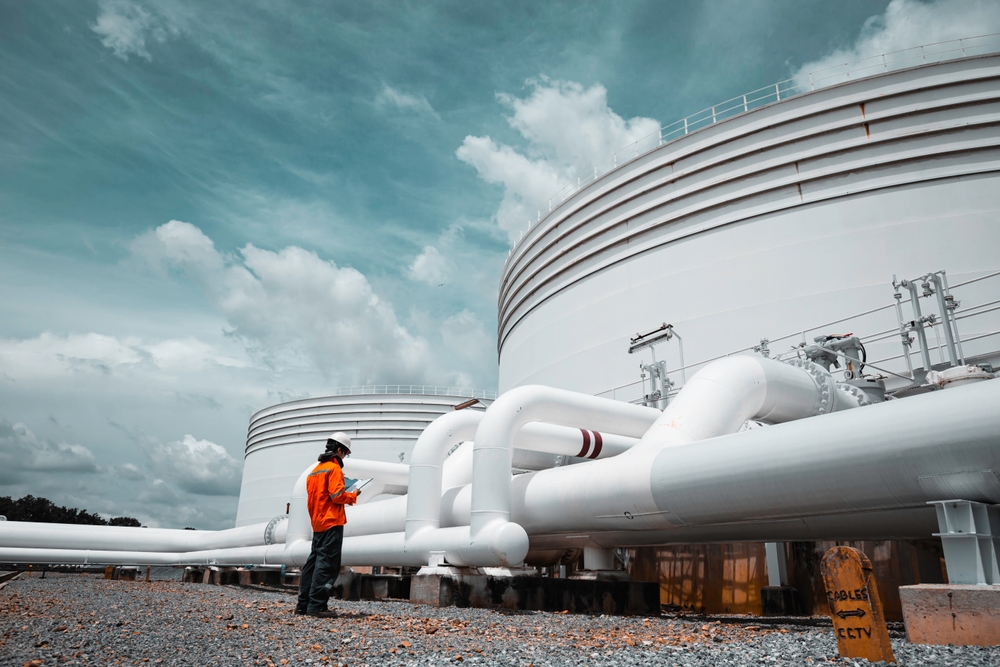
.jpg)
This course discusses controlling the flow of fluids in industry with the main emphasis on the fundamentals of flow, measurement, control, and optimization. A participant will acquire practical skills for the design, operation and maintenance of flow control systems with a view to improving variance process performance, safety, and dependability in the industrial setting.
| City | Start Date | End Date | Fees | Register | Enquire | Download |
|---|---|---|---|---|---|---|
| Cairo | 23-06-2025 | 27-06-2025 | 3950 $ | Register | Enquire | |
| Vienna | 30-06-2025 | 04-07-2025 | 6200 $ | Register | Enquire | |
| Prague | 07-07-2025 | 11-07-2025 | 6200 $ | Register | Enquire | |
| Kuala Lumpur | 14-07-2025 | 18-07-2025 | 4950 $ | Register | Enquire | |
| Dubai | 21-07-2025 | 25-07-2025 | 4300 $ | Register | Enquire | |
| Dubai | 04-08-2025 | 08-08-2025 | 4300 $ | Register | Enquire | |
| Sharm El Sheikh | 11-08-2025 | 15-08-2025 | 3950 $ | Register | Enquire | |
| Madrid | 18-08-2025 | 22-08-2025 | 6200 $ | Register | Enquire | |
| Casablanca | 25-08-2025 | 29-08-2025 | 4950 $ | Register | Enquire | |
| Singapore | 01-09-2025 | 05-09-2025 | 5500 $ | Register | Enquire | |
| London | 08-09-2025 | 12-09-2025 | 6200 $ | Register | Enquire | |
| Barcelona | 15-09-2025 | 19-09-2025 | 6200 $ | Register | Enquire | |
| Casablanca | 22-09-2025 | 26-09-2025 | 4950 $ | Register | Enquire | |
| Cairo | 29-09-2025 | 03-10-2025 | 3950 $ | Register | Enquire | |
| Amsterdam | 06-10-2025 | 10-10-2025 | 6200 $ | Register | Enquire | |
| London | 13-10-2025 | 17-10-2025 | 6200 $ | Register | Enquire | |
| Barcelona | 20-10-2025 | 24-10-2025 | 6200 $ | Register | Enquire | |
| Dubai | 03-11-2025 | 07-11-2025 | 4300 $ | Register | Enquire | |
| Amsterdam | 10-11-2025 | 14-11-2025 | 6200 $ | Register | Enquire | |
| Singapore | 24-11-2025 | 28-11-2025 | 5500 $ | Register | Enquire | |
| Manama | 01-12-2025 | 05-12-2025 | 4400 $ | Register | Enquire | |
| London | 08-12-2025 | 12-12-2025 | 6200 $ | Register | Enquire | |
| Bali | 22-12-2025 | 26-12-2025 | 4950 $ | Register | Enquire | |
| Amsterdam | 29-12-2025 | 02-01-2026 | 6200 $ | Register | Enquire |
In industrial processes and chemical transformations, modern fluid flow control methods are essential for effective operation. These systems manage the quantity of fluid, measure parameters such as temperature and pressure, and ensure maximum flow during emergencies.
Pumps and compressors typically incorporate flow control systems to regulate rates and pressures, as well as motor loads through variable-speed motors or couplings. Valves play a crucial role in fluid flow management, performing functions like pressure reduction, rate control, back pressure control, and pressure relief.
Fluid flow measurement is a critical variable in transporting fluids through pipelines and piping systems. This data, often computerized, helps in investigating anomalies through flow balances computed on an hourly, daily, or weekly basis. The course on Fluid Flow Control Systems covers practical aspects of industrial fluid measurement, including error analysis in results.
By the end of this Fluid Flow Control Systems in Process Industries course, participants will be able to:
Unit 1: Fluid Flow Control in the Process Industry
Unit 2: Fluid Flow Measurement Techniques
Unit 3: Measurement-Related Issues
Unit 4: Instrument Installation and Accuracy
Unit 5: Flow Control for Pumps, Compressors, and Fans

.jpg)

.jpg)
.jpg)














